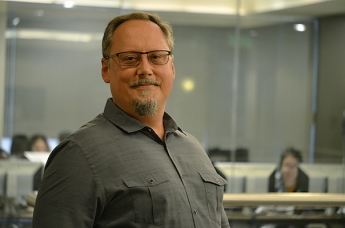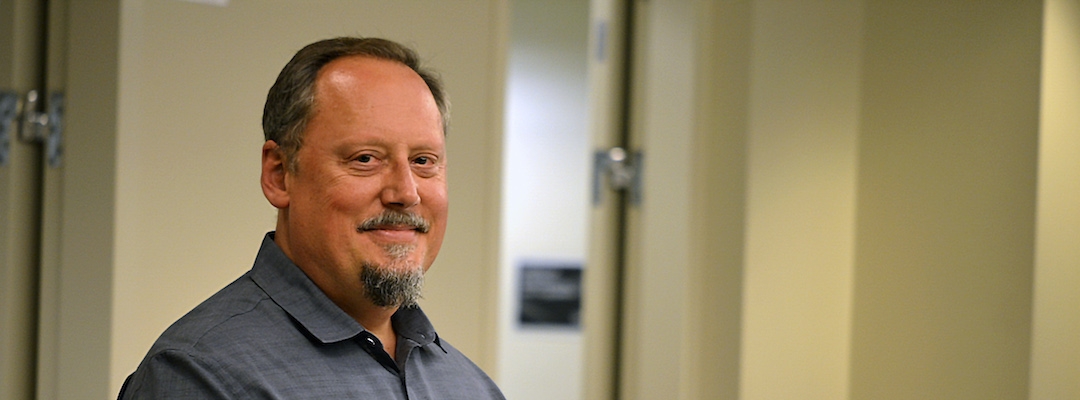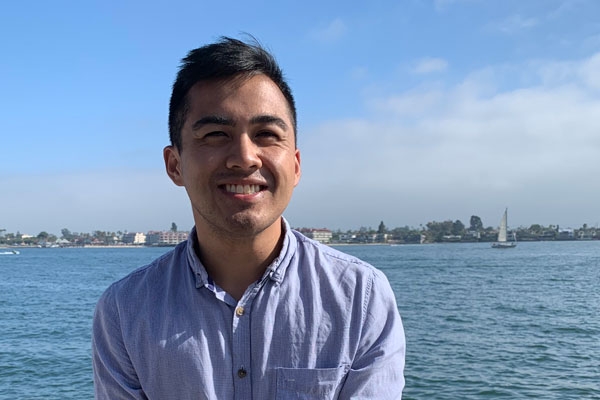When you skim through the course evaluations for Richard Sprott, Ph.D., you see phrases such as "great course, great teacher." He's "fantastic." He is "an amazing lecturer who made going to class enjoyable." Dr. Sprott has a genuine passion for teaching, and for the past seven years has imparted his knowledge to Extension's students in a way that enhances the desire for further learning in the behavioral health sciences field.

"I love teaching students who are strongly motivated—and Extension students are strongly motivated to learn, to improve their lives and start new careers," Sprott says. "I get to work with students who are talented and bring very interesting life experiences with them. These engaged, enthusiastic students invigorate and challenge my teaching."
It's no wonder that students are engaged with Sprott, a popular instructor in the Post-Baccalaureate Program for Counseling and Psychology Professions. He incorporates thoughtful questions facing society in the courses he teaches, including one of the program's required courses, Introduction to Developmental Psychology.
The opportunity to dive deep—and think deep—about a particular set of questions is invaluable training.
"I believe that developmental psychology and the practices and methods of science as a way of knowing the world address not only some of the biggest questions facing our society but also the biggest questions facing individuals as they try to make sense of their lives," adds Sprott. "Questions such as, 'What is the impact of technology on children and adolescents? How is it affecting them as people?' Or, 'How does poverty or income inequality affect families over time?' Really, the questions that face individual families, and society as a whole, are the focus of the courses I teach for Extension."
Bringing the Textbook to the Real World
Enabling his students to ask themselves those types of questions is just one part of Sprott's teaching methodology. Outside of the classroom, he mentors psychology students who want to better understand the field. For example, Sprott invited students to engage in a hands-on, topical research project in which they can apply research methods—which has since evolved into a research practicum course—and gain experience as social researchers. And what would science be without doing research?
"There is nothing like getting your hands dirty and working with the actual stuff of data to understand a field like psychology or other social sciences," enthuses Sprott. "Figuring out ways to apply a theory, to see the connection between people's experiences, environments and the way they turn out as human beings—that comes alive when you are trying to do the science."
Research experience has always been critical in graduate-level education; UC Berkeley Extension is fortunate to have Sprott introduce it in the post-baccalaureate program. "Having students work on a research project is starting to become more and more common at the undergraduate level," Sprott explains. "These experiences and opportunities prepare students for graduate school in a way that a regular lecture and discussion course can't provide. Although regular courses do touch upon it, the opportunity to dive deep—and think deep—about a particular set of questions is invaluable training."
I believe that Extension students are motivated to make a change in the world.
Focusing on Identity Development Around the Bay Area
Sprott's enthusiasm for his field doesn't stop with his students. He is equally passionate about his work at other Bay Area universities and community research organizations. In addition to teaching at Extension, Sprott is adjunct faculty and, for more than 20 years, field placement administrator at California State University, East Bay. An instructor at Holy Names University, he administrates field placement and internships for counseling psychology students there, as well. In his role as the executive director of the Community-Academic Consortium for Research on Alternative Sexualities for the San Francisco Bay Area, Sprott conducts research on identity development and the health and well-being of people who have expressed alternative sexualities and are in nontraditional relationships. He also has a long history of conducting evaluations for educational programs aimed at migrant farmworker families and their children. His work encompasses the intersection of stigma, prejudice, minority dynamics, language, identity development and community development.
As for bringing these experiences to his classroom, Sprott says, "I touch upon these areas when it is appropriate; I use these experiences to point out the importance of doing community-based research or the practicality of applying psychological research methods to programs and interventions that service stressed or stigmatized communities. This is about having one foot in academia and one foot outside of academia, on the front lines working with people who are suffering or who are in need. The 'practice' aspect is an important value to my work, and I believe that Extension students are motivated to make a change in the world."
It is true. Students come to Extension to make a difference—in their own lives, in their work lives, in the lives of others. Learning about psychology and other social sciences isn't just for one group of students; it affects everyone, and Sprott knows that.
"There is such great need of understanding in the world," says Sprott, "and the field of psychology—and developmental psychology, in particular—is an amazing way to respond to that great need. The study and training are challenging, but the rewards of a meaningful career in psychology make it worth the journey."
Entering the field of psychology is an amazing way to respond to the world's great need. This brings it all back to one all-encompassing word to describe Sprott as an instructor: Inspiring.

Richard Sprott, Ph.D., Extension Honored Instructor, is an experienced university educator in psychology. His work has focused on language and social and cognitive development in early childhood, as well as identity and sexual development in adulthood. Sprott's research interests include the intersections of identity, culture, sexuality and well-being.



